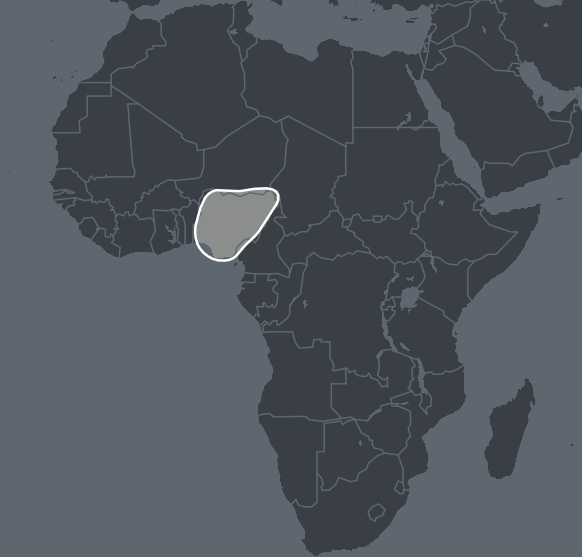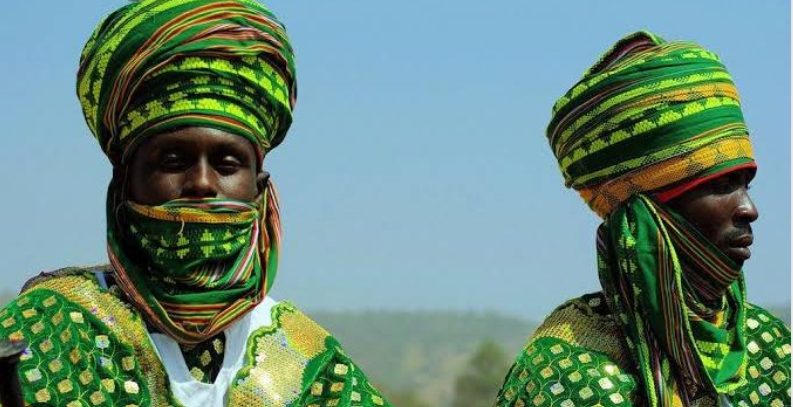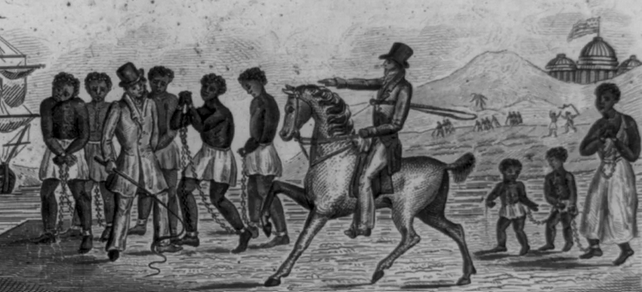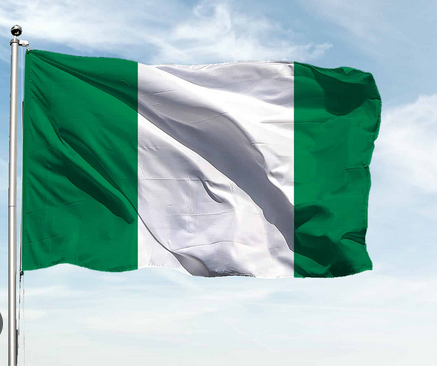What is [Nigeria ](/blog/what-is-nigeria-east-central-dna-ethnicity-on-ancestry/)DNA Ethnicity on Ancestry?
Nigeria DNA Region
The Nigeria DNA region is one of two that appears within the West African country of Nigeria. It spans almost the entire country. There are some small exceptions to this however in the northwest and southwest of the nation.

This region does also extend across a few neighboring borders with small pockets of this DNA being found in Cameroon, Chad, Niger and Benin. These are small border region sections whereby this common DNA has become part of the local populations.
History of Africa
According to the paleontological record, it was the continent of Africa in which the first hominids developed. These early hominids were the first to walk in a bipedal motion and it is from them that eventually humans as we know them today evolved.
The fossil records suggest that homo sapiens were living in Africa between 260,000 to 350,000 years ago. Remains from South Africa, Morocco and Ethiopia seem to suggest that homo sapiens were already widespread throughout the continent during that time frame.
History of Nigeria
Early Known Peoples
It is uncertain just how long humans have been present in Nigeria but it could be tens of thousands of years. Other countries in the region have shown clear evidence of habitation dating back over 16,000 years.
The first recorded peoples of Nigeria however are a group known as Nok. Likely emanating from further north in the continent from the so-called Sahel region this is a generalized term for where the Sahara desert met the Sudanian Savanna lands.
It is believed the Nok thrived between 1,500 BC and 200 AD and exhibited some skill in creating life size terracotta figures. They also showed signs of impressive metallurgy skill and were smelting iron by about 550 BC.
Early Nigerian History
As with many African nations, during its early developmental history Nigeria saw the rise of city states as well as various kingdoms. The early cities arose around the Hausa people who are a group known to have connections to the Sahel regions of Africa. Cities such as Daura, Hadeija, Kano and Katsina owe their existence to the Hausa.

During the 7th century the Islamic religion started to rise in the region causing it to become known as Sudan. This connected the region to North Africa which in turn brought what we know as Nigeria today into the profitable trans-Saharan trade routes. Essentially the region was considered an extended part of the Muslim world at that time.
Around the 10th century the Kingdom of Nri came to prominence with the ruling monarchs being considered priest-kings. They were considered not just a political power but also a religious one. They would maintain their sovereignty in the country until the British colonized the region in the early 1900s.
Early European Slave Trade
One of the most significant aspects in Nigerian history is the arrival of Portuguese explorers in the 16th century. This quickly led to oceanic trade with southern Nigeria through the port of Lagos known then as Eko. Among the goods that sailed from that port were some of the first slaves of the transatlantic slave trade. In fact the port of Calabar became one of the largest slave-trading posts in West Africa.

The Fulani
Away from the coast in the north of Nigeria the Hausa city-states were in constant conflict with each other. This coupled with the decline of the Bornu Empire, a ruling power throughout Niger, Cameroon, Libya, Chad and Nigeria created a vacuum. It would be a nomadic peoples, the Fulani who filled this power vacuum.
The Fulani were a nomadic ethnic group who primarily ranged from the Sahelian region to the north of Sudan mainly working with cattle. They were not part of the trans-Saharan trade and were of Islamic faith and language.
At the start of the 19th century a Fulani scholar by the name of Usman dan Fodio led a successful jihad against the Hausa Kingdoms. In the process he founded the Sokoto Caliphate. This would become an empire that he and his descendants would rule and expand throughout Nigeria.
The Sokoto Caliphate became one of the largest pre-colonial African states up until its breakup in 1903 when the region was parceled out to various European colonies. The British already held influence in Nigeria since the 1850s but in 1902 they decided to move against the Caliphate.
Independence
British rule would be short lived however as in 1954 a process of self-rule was begun for the country which culminated in independence in 1960. Upon independence they became known as the Federation of Nigeria.

The peace of independence did not last long though as corrupt elements of the first republic soon found themselves in a bitter civil war. There were no less than two military coups in 1966 alone. This pattern of coups would continue for decades with no fewer than three republics being established before things would finally settle down.
The country dealt with dictators and corruption for years and it was not until 1999 that Democracy of a sort started to settle the country. Despite elections being held the international community has been critical of what it sees as flawed and often rigged elections.
Where Does My Nigerian DNA Come From?
As mentioned several ports in southern Nigeria were very active in the transatlantic slave trade. Captors from military conflicts within Nigeria and with neighboring African nations saw thousands taken as slaves. Some were forced into labor within Nigeria but others were funneled via trade roots to the ports and loaded aboard ships for the New World.
From these Nigerian ports thousands upon thousands of Africans from West Africa were shipped into slavery meaning that millions of individuals of African descent today may have had ancestors pass through those ports in Nigeria. It would not then be unsurprising for an African American to find Nigerian DNA in their estimate.
A connection to Britain through being a protectorate nation of the crown would also mean that a certain level of immigration could come from Nigeria. Although many individuals of African descent in Britain came from the West Indies there is certainly a sizable amount who immigrated from various African commonwealth countries such as Nigeria.
Can I Trace My Nigerian Ancestors?
Some countries have a rich depth of recorded vital records while others may be extremely limited. Countries such as Nigeria definitely fall into the latter category. If you have no idea where this region arose in your DNA and from whom, it may be difficult to trace that individual back to their origin.
If you can discover who your first immigrant ancestor from the region was you may be able to access records regarding their immigration process. Often such records give more detail about the individual such as parents' names and place of birth.
Due to decades of internal instability Nigeria’s usable genealogical records would be extremely limited. Decades of mistrust of the governments and dictatorships would mean that official records on population and vital records would not be well enforced.
Final Thoughts
Nigeria was a central hub for the transatlantic slave trade and also a major stop along the trans-Saharan trade routes. For centuries its prosperity relied on the use and sale of African slaves. This may have led to a spread of the common DNA found throughout much of the country into the world at large.
Those who discover their DNA shows indications of the Nigeria region may be descended from these slaves or more recent ancestors may have been immigrants around the commonwealth or in some cases refugees fleeing decades of civil wars in the nation.
Link To or Reference This Page
We spent a lot of time downloading, cleaning, merging, and formatting the data that is shown on the site.
If you found the data or information on this page useful in your research, please use the tool below to properly cite or reference Name Census as the source. We appreciate your support!
-
<a href="https://namecensus.com/blog/what-is-nigeria-dna-ethnicity-on-ancestry/">What is [Nigeria ](/blog/what-is-nigeria-east-central-dna-ethnicity-on-ancestry/)DNA Ethnicity on Ancestry?</a>
-
"What is [Nigeria ](/blog/what-is-nigeria-east-central-dna-ethnicity-on-ancestry/)DNA Ethnicity on Ancestry?". NameCensus.com. Accessed on May 10, 2024. https://namecensus.com/blog/what-is-nigeria-dna-ethnicity-on-ancestry/.
-
"What is [Nigeria ](/blog/what-is-nigeria-east-central-dna-ethnicity-on-ancestry/)DNA Ethnicity on Ancestry?". NameCensus.com, https://namecensus.com/blog/what-is-nigeria-dna-ethnicity-on-ancestry/. Accessed 10 May, 2024
-
What is [Nigeria ](/blog/what-is-nigeria-east-central-dna-ethnicity-on-ancestry/)DNA Ethnicity on Ancestry?. NameCensus.com. Retrieved from https://namecensus.com/blog/what-is-nigeria-dna-ethnicity-on-ancestry/.
